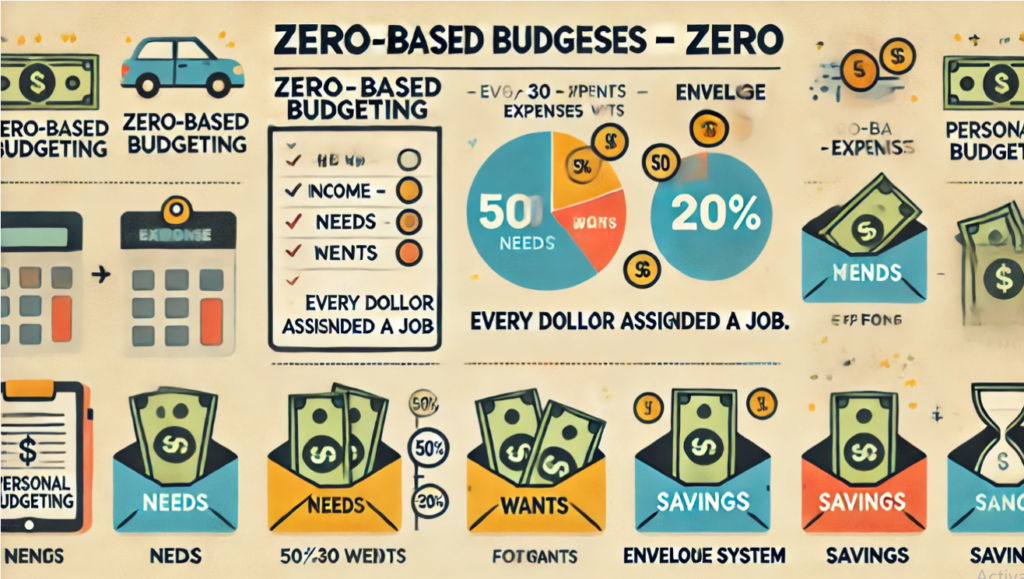
Personal finance is the management of an individual’s financial decisions and activities, including budgeting, saving, investing, and spending. Importance of budgeting plays a crucial role in personal finance as it helps individuals track their income and expenses, prioritize their spending, and save for future goals. However, many people face challenges when it comes to managing their money effectively, such as living paycheck to paycheck, accumulating debt, or struggling to save for major expenses. Budgeting is essential for achieving financial stability and reaching long-term financial goals, such as buying a home, starting a business, or retiring comfortably. In this article, we will explore the benefits of budgeting and how it can help individuals take control of their finances.
What Is Budgeting?

Budgeting is the process of creating a plan for how you will spend and save your money. It involves setting financial goals, tracking your income and expenses, and allocating funds for different categories such as housing, food, transportation, and savings. To create a budget, you start by calculating your total income and listing all your expenses. This allows you to see where your money is going and identify areas where you can cut back or save more. Common budgeting methods include the 50/30/20 rule, which suggests allocating 50% of your income to necessities, 30% to discretionary spending, and 20% to savings and debt repayment.
Provides Financial Clarity and Control

Budgeting is an essential tool for gaining financial clarity and control. By creating a budget, individuals can clearly see the amount of income they have coming in and the expenses they need to cover. This provides a clear picture of their financial situation and allows them to make informed decisions about their spending and saving. One of the key benefits of budgeting is the ability to distinguish between wants and needs. By carefully tracking expenses, individuals can identify areas where they may be overspending on non-essential items and make adjustments to prioritize their needs. This helps them allocate their resources more effectively and avoid unnecessary financial strain. Moreover, having a budget in place allows for greater control over spending.
Helps Achieve Financial Goals

Budgeting is an essential tool for achieving financial goals as it serves as a roadmap to guide individuals in saving for major expenses, such as a home, retirement, or debt repayment. By creating a budget, individuals can clearly outline their income and expenses, allowing them to allocate funds towards specific goals. Budgeting plays a crucial role in setting both short-term and long-term financial goals. For example, individuals can use budgeting to save for a down payment on a home or plan for retirement by allocating a portion of their income towards savings or investments. Additionally, budgeting can help individuals prioritize debt repayment by allocating extra funds towards paying off high-interest debt. Real-world examples demonstrate how budgeting can help individuals save for major expenses or build wealth over time.
Encourages Saving and Emergency Preparedness

Budgeting is a crucial tool for encouraging saving and emergency preparedness. By allocating a portion of income toward savings, individuals can ensure they have a financial cushion in case of unexpected expenses or emergencies. Budgeting helps people save consistently for an emergency fund or future expenses by prioritizing savings as a non-negotiable expense. This can help individuals avoid the stress and uncertainty of not having enough money to cover unexpected costs. In addition, budgeting provides a cushion in case of unexpected financial challenges such as job loss or medical bills. By consistently saving a portion of their income, individuals can build up a safety net that can help them weather these challenges without having to rely on high-interest loans or credit cards.
Reduces Debt and Prevents Overspending

Budgeting is a crucial tool in reducing debt and preventing overspending. By creating a budget, individuals can track their expenses and prioritize repayments, allowing them to allocate more funds towards paying off debts. This can help to lower overall debt levels and eventually lead to financial freedom. Additionally, budgeting plays a significant role in avoiding impulse buying and managing credit card debt. By setting clear spending limits and prioritizing needs over wants, individuals can curb the temptation to make unnecessary purchases and accumulate more debt. This can also help in managing credit card debt more effectively by ensuring that payments are made on time and in full. Sticking to a budget is essential in preventing the trap of overspending and accumulating unnecessary debt.
Promotes Financial Literacy and Awareness

Budgeting forces individuals to review their finances regularly and understand where their money goes because it requires them to track their income and expenses, set financial goals, and allocate funds for various expenses such as bills, savings, and discretionary spending. By regularly reviewing their finances, individuals can identify areas where they may be overspending or where they can make adjustments to better align their spending with their financial goals. This level of awareness and understanding ultimately helps individuals make more informed financial decisions and take control of their financial well-being.
Budgeting is a key component of improving overall financial literacy. By creating and sticking to a budget, individuals can gain a better understanding of their income, expenses, and overall financial situation. This process helps people become more aware of their spending habits and allows them to make more informed decisions about their money. By learning how to budget effectively, individuals can develop important financial skills that can ultimately lead to better money management and long-term financial stability.
Budgeting plays a crucial role in teaching people how to manage their money effectively, avoid financial pitfalls, and make informed decisions. By creating a budget, individuals can track their income and expenses, prioritize their spending, and set aside funds for savings and emergencies. This helps them avoid overspending, accumulating debt, and falling into financial trouble. Additionally, budgeting encourages people to make informed decisions about their financial goals and priorities, such as saving for a home, retirement, or education. Overall, budgeting is an essential tool for building financial literacy and promoting responsible money management.
Strengthens Mental and Emotional Well-being

Budgeting can have positive psychological benefits, such as reducing anxiety about money. When you have a budget in place, you have a clear understanding of your financial situation and can plan for expenses and savings goals. This can help alleviate stress and worry about not having enough money to cover your needs. Additionally, having a budget can give you a sense of control and empowerment over your finances, which can contribute to a greater sense of overall well-being.
Having a clear financial plan can foster a sense of accomplishment and control by providing a roadmap for achieving your financial goals. It allows you to prioritize your spending and saving, and track your progress towards your goals. This sense of control can lead to a greater sense of accomplishment as you see your financial situation improve and your goals become more achievable. Additionally, having a plan in place can help reduce the stress and anxiety often associated with money management, leading to a greater sense of peace and security. Overall, a clear financial plan can empower you to take control of your finances and work towards a more secure and successful future.
Having peace of mind about your financial future is important for overall well-being. It means feeling confident that you are on track to meet your financial goals, whether that’s saving for retirement, paying off debt, or achieving other milestones. Knowing that you have a plan in place and are making progress can alleviate stress and give you a sense of security. It’s important to regularly review and adjust your financial plan to ensure you stay on track and continue to have peace of mind about your financial future.
Common Budgeting Challenges and How to Overcome Them

Creating and sticking to a budget can be a challenge for many individuals due to a variety of factors. One common obstacle is irregular income, which can make it difficult to predict and plan for expenses. Additionally, unexpected expenses such as medical bills or car repairs can throw off even the most well-crafted budget. To overcome these challenges, consider using budgeting apps that allow you to track your income and expenses in real-time. This can help you adjust your budget as needed and stay on top of your finances, even with irregular income. It’s also important to build an emergency fund to cover unexpected expenses, so they don’t derail your budget. Consistency and flexibility are key in maintaining a budget.
Budgeting is a crucial tool for maintaining financial health and achieving long-term financial goals. By creating and sticking to a budget, individuals can track their spending, prioritize their expenses, and save for the future. Some key benefits of budgeting include reducing financial stress, increasing savings, and avoiding debt. It also helps individuals to make informed decisions about their money and stay on track with their financial goals. It’s important to remember that budgeting is not a one-time task, but an ongoing process. Regularly reviewing and adjusting your budget as your financial situation changes is essential for long-term success. By consistently monitoring your spending and making necessary adjustments, you can maintain control over your finances and work towards achieving your financial aspirations.














